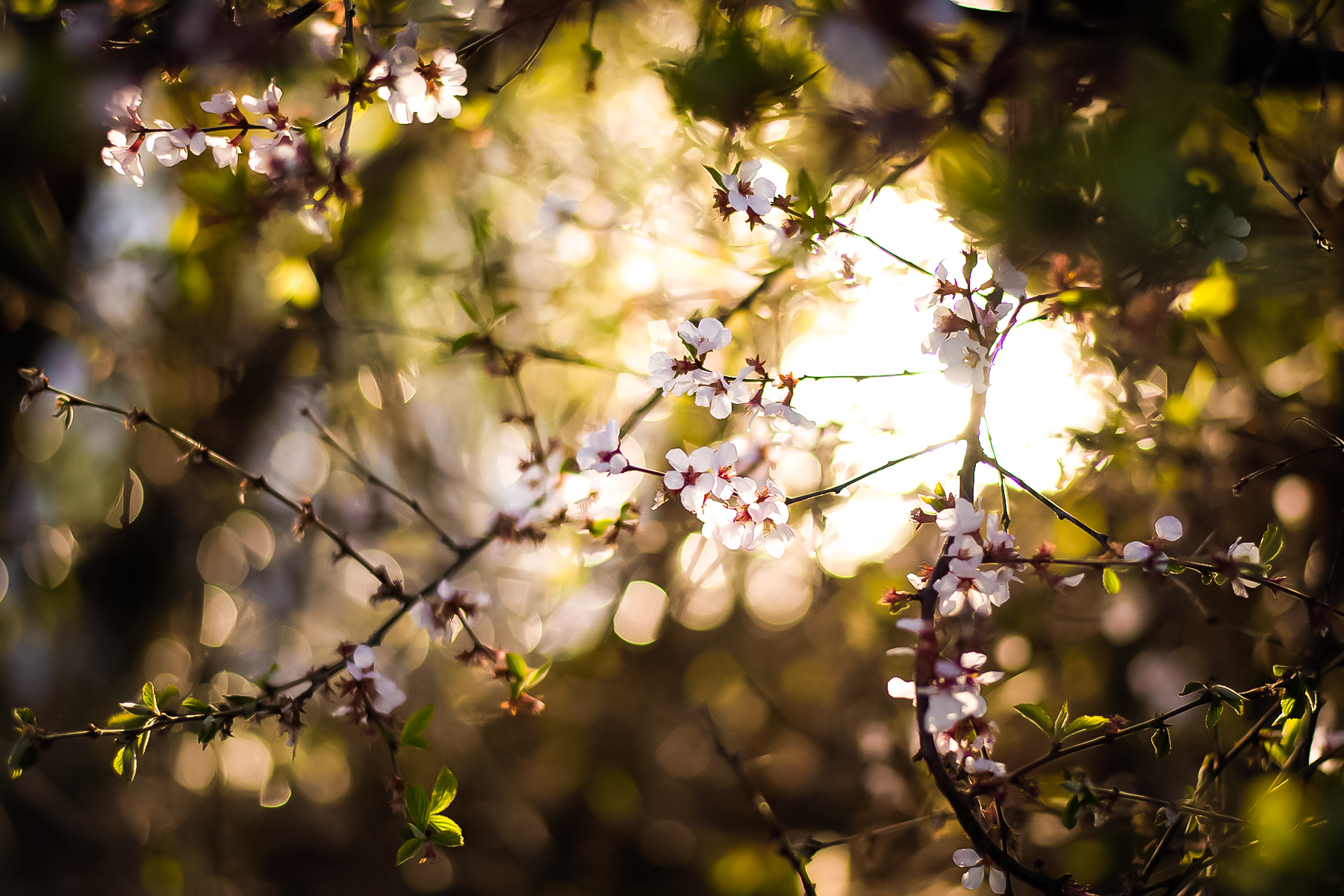“The best piety is to enjoy—when you can,” says Will Ladislaw in George Eliot’s Middlemarch. “You are doing the most then to save the earth’s character as an agreeable planet. And enjoyment radiates.”
When I was a teenager, this idea of Will’s—the notion that a cheerful, tender, and grateful attitude towards the world around us could be God’s high calling—was distasteful to me. I wanted to do Big Things, to take on impossible challenges, to tackle injustices by the throat and relish the sound of them roaring for mercy. Like many young people, I was a zealot, a white knight wannabe. I wanted to wade in swinging, and I resisted the suggestion that joy can be a good deed on its own. For me, worthy actions needed to involve warfare of some kind, and the good fight of faith had to feature some form of toppling.
But I’ve changed my mind. A lot went into it. I’ve lived in fifteen different houses on three continents, built and bid farewell to countless clusters of friends, seen bold dreams flicker in and out like candles. I’ve watched dearly beloved people fall victim to horrible abuse, reeled at unexpected betrayals, and agonized over the impossibility of being understood by everyone who matters to me. I’ve had some years of pitch-black darkness. I’ve gone to sleep at night hoping not to wake in the morning. I’ve watched fear bloom in my heart like a Venus flytrap, snapping at any beautiful thing that dares to flutter too close. And I’ve decided: this joy thing is not child’s play. Joy too can be an act of resistance, as many people before me have observed.
In 2019, I discovered the jubilant poetry of Aimee Nezhukumatathil on the hearty recommendation of Dr. Robert Fink, a former professor of mine who continues to inspire me with his own thoughtful writing. Aimee came to speak at my alma mater in April of that year, and in preparation for her visit, Alex and I made our way through two of her poetry collections: Lucky Fish and Oceanic. I was captivated by these thin volumes of wide-awake, lively, and intricately-detailed poems celebrating the quirks and glories of nature, people, and place. And when Aimee came to little old Abilene out in the wilderness of West Central Texas, I was fascinated by her upbeat and childlike manner of reading and sharing her work with an odd mixture of wonder, reverence, and humor. Although her poetry embraces honesty and makes space even for anger, the central element seems always to be awe, a voice saying, “Look, isn’t this astonishing?”
“Joy,” Aimee said to us in effect, “can be a form of protest against the darkness in the world.” And I hugged this concept close to me because by that point, I was beginning to understand the truth of it. I was beginning to recognize that choosing to affirm and advance the reality of beauty and light is not a given. Indeed, in the face of life’s bizarre twists and shattering disappointments, sometimes joy seems like a metaphysical impossibility. But it is precisely this elusive quality that gives it the restorative properties George Eliot underscores in Middlemarch.
So how do we radiate enjoyment? What does it look like in the real world where so many of us spend most of our waking hours doing work we aren’t particularly fond of in order to justify an existence that isn’t what we would have chosen for ourselves? What does it mean to enjoy things as they’ve come to us when we heartily wish things would have come to us in a very different way? For Aimee Nezhukumatathil, it has involved writing happy poems about her terrifying emergency C-section experience and the scar it left behind. I’ve never given birth to a child, but I get these poems. I understand the strange knots that happy and horrible things make; the way they tangle together and can’t be pulled apart. And I think sometimes the very best thing we can do is to take these jumbles of the sweet and the sad and celebrate them using whatever creative tools are in our reach.
For someone who has carried the word “joy” enshrined in my own name since birth, I’m woefully bad at practicing it, so I’m not here today to admonish anyone to up their cheer factor. That would hardly be fair. What I am here for is to affirm the subversive and healing power of stubborn gladness and taking delight. And to say that in a world where darkness is clutching at us from all sides, cultivating childlike wonder is a feat for champions. ![]()
The featured image is courtesy of Julie Jablonski and used with her gracious permission for Cultivating and The Cultivating Project.
Bryana Joy is a writer, poet, and full-time artist who spends most of her time making and mailing the Letters From The Sea Tower, a handmade monthly subscription letter full of watercolor sketches, paintings, and snippets of glory from the Great Books. Bryana has lived in Turkey, Texas, and England, and currently resides in Eastern Pennsylvania with her husband. She enjoys hosting online poetry workshops, and her poetry has appeared or is forthcoming in an assortment of literary magazines, including The Christian Century, Beloit Poetry Journal, and Chestnut Review. Bryana takes delight in thunderstorms, loose-leaf tea, green countrysides, and the music of Johann Sebastian Bach.
Leave a Reply
A Field Guide to Cultivating ~ Essentials to Cultivating a Whole Life, Rooted in Christ, and Flourishing in Fellowship
Enjoy our gift to you as our Welcome to Cultivating! Discover the purpose of The Cultivating Project, and how you might find a "What, you too?" experience here with this fellowship of makers!


Bryana, thank you for this beautiful piece. I’m grateful for your fresh reminder of the importance of joy and wonder in writing and in life.
Bryana, Yes!! What immediately came to my mind as I read was Apostle Paul’s directive in Philippians 4,
“Rejoice in the Lord always; again I will say, rejoice. Let your reasonableness be known to everyone. The Lord is at hand; do not be anxious about anything, but in everything by prayer and supplication with thanksgiving let your requests be made known to God. And the peace of God, which surpasses all understanding, will guard your hearts and your minds in Christ Jesus.”
I have been encouraged to praise God, joyfully, in All my circumstances.
You beautifully reminded us that in our frustration and desire to “resist” we can wield the powerful tool of JOY in Christ and engage in a dimension much more real than we had imagined.
I am taking this with me as I head to bed, nourished: “What I am here for is to affirm the subversive and healing power of stubborn gladness and taking delight. And to say that in a world where darkness is clutching at us from all sides, cultivating childlike wonder is a feat for champions.” Amen, sister. Amen.
Yes! Thank you for underscoring this very Scriptural stance, and for helping me get rid of a hidden fear of being called Pollyanna-ish because I aim to walk, looking for how God has “crammed this earth with heaven“, as E.B.B. has written.
What a joy you are!
Denise
Defiant joy is the best kind. This is the continued sacred echoes I am in need of these days. Thank you for sharing. May your joy be complete.
Really well done. Definitely squares with what I’ve observed and seek to practice in my own life. In fact, I have cut out people from my life that don’t seem to have joy, simply because I don’t just want the “correct” perspective… I want the joyful perspective.
My favorite sections are these:
“I was beginning to recognize that choosing to affirm and advance the reality of beauty and light is not a given. Indeed, in the face of life’s bizarre twists and shattering disappointments, sometimes joy seems like a metaphysical impossibility.”
“I understand the strange knots that happy and horrible things make; the way they tangle together and can’t be pulled apart. And I think sometimes the very best thing we can do is to take these jumbles of the sweet and the sad and celebrate them using whatever creative tools are in our reach.”
Michael, thanks so much for reading and for all the kind remarks you’ve made about this piece in various places around the web. It’s been a joy to get “acquainted” with you this month!
Mary, I so appreciate your thoughtful response: “in our frustration and desire to ‘resist’ we can wield the powerful tool of JOY…” Yesss.
Amy, I’m so glad you were cheered by this! Thanks for reading.
Denise, it’s real, isn’t it? The sneaky worry that our hard fight for joy might be written off by others as a kind of shallow optimism? I’ve always thought Pollyanna gets a bad rap, though! She encounters suffering of her own kind and struggles through it with great anguish, giving birth to a fuller, riper understanding of gladness. So I always say go full Pollyanna! (insofar as it’s possible)
Thanks for reading and for sharing your thoughts. I appreciate you.
Peggy, I’m carrying that phrase of yours around with me today: “sacred echoes.” Thanks for reading.
Martyn, I love your observation that there is a “joyful perspective” on life and that it’s a lens we need to be looking for. Thanks for reading!